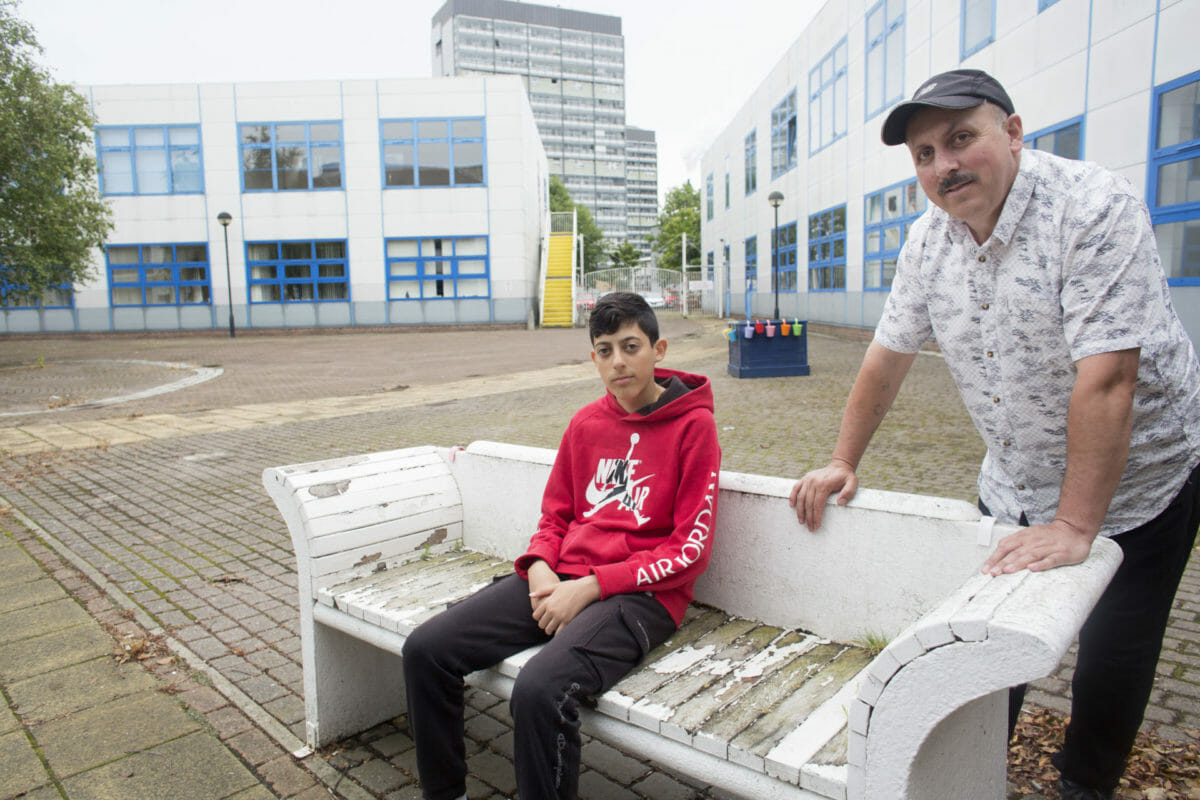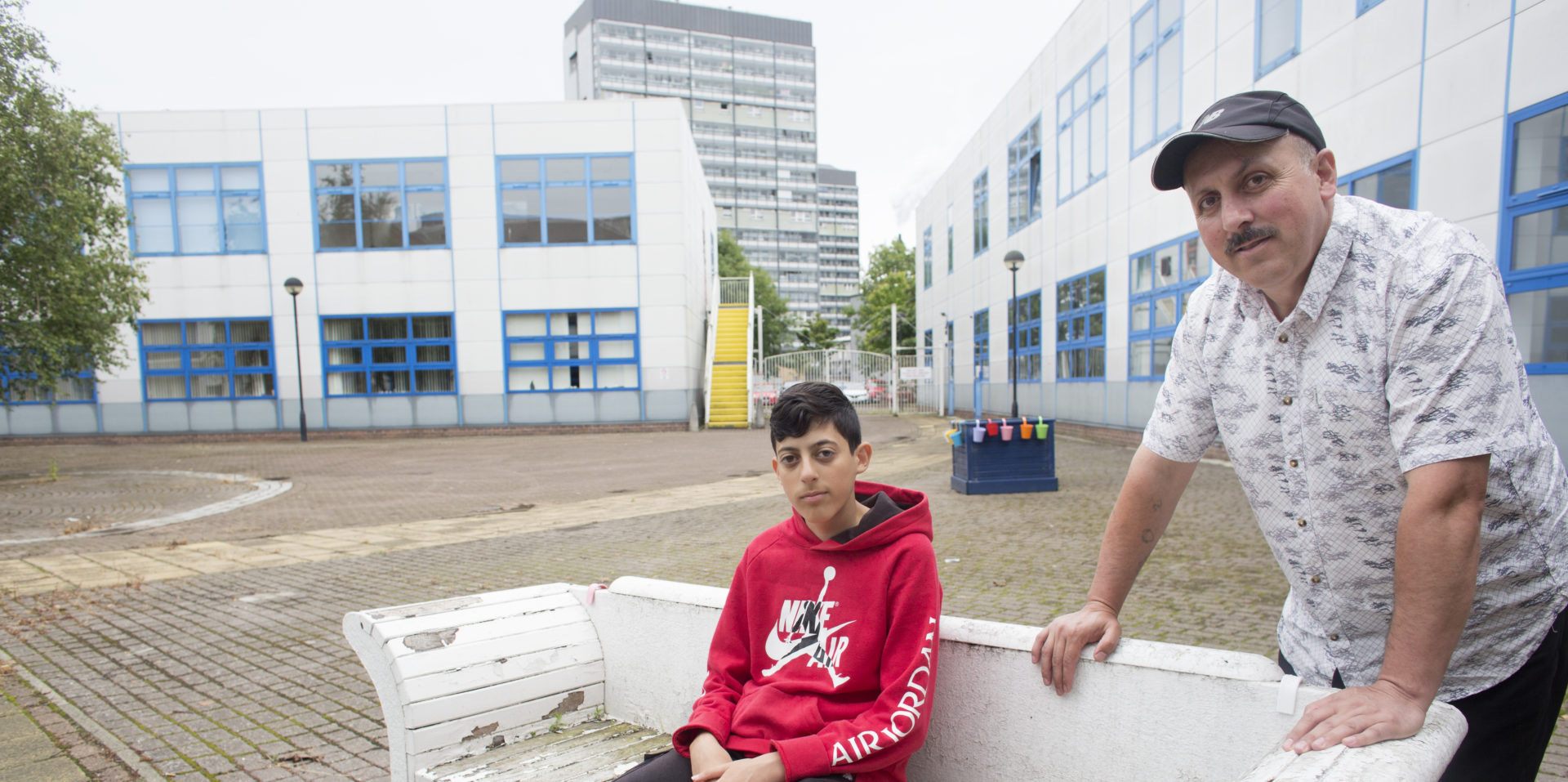A charity that helps survivors of torture has accused Glasgow City Council of failing to provide young asylum seekers and refugees with free bus passes and depriving them of a “vital lifeline” during the cost-of-living crisis.
Freedom from Torture (FfT) – an organisation that offers psychological support to people who survived tortured – said it was “outrageous” that the council with the highest number of asylum seekers in Scotland has “failed to implement a policy” introduced more than seven months ago.
FfT’s concerns over the free bus pass scheme have been backed by two other charities, with one claiming the system discriminates against asylum seekers, “sending them on a fruitless merry go round”.
In reply, Glasgow City Council said that almost 50,000 young people in Glasgow have received their free travel pass to date and that it has tried to address access problems facing some people.
“We very much hope issues will be fully ironed out shortly so that everybody in Scotland under 22, no matter their immigration status, is practically able to access free travel.”
Gary Christie, head of policy, communications and communities at Scottish Refugee Council.
The bus pass scheme is a Scottish Government initiative which issues a National Entitlement Card (NEC). It began on 31 January 2022, allowing five to 21 year olds to travel for free in Scotland.
The scheme suffered problems at the outset, however, and was branded a “shambles” when Transport Scotland delayed its marketing campaign and asked only those making essential journeys to apply for a card, while claiming the pandemic was causing problems.
In March it was reported that dozens of parents had complained on social media about the bus pass application being complicated.
Concerns have now been raised that a complex online application process is causing delays and exacerbating financial hardships for vulnerable families, with some young asylum seekers and refugees not yet able to obtain the free bus passes months after the scheme started.
FfT – a UK-wide charity whose only Scottish centre is in Glasgow – said that some of its clients have been affected by the delays including a 14-year-old Kurdish boy, Rasool, who waited nearly eight months to get a pass. His parents – Soran and Nestihan – who have been granted refugee status in the UK, are supported by the charity.

Soran – who is unable to work due to injuries he received after being tortured by the Iranian regime – told The Ferret: “Rasool had to apply five times in total and couldn’t understand why all his friends could get free bus travel and he couldn’t. The cost of bus travel is expensive – £2.20 a day for Rasool and £5 a day for adults. Our total income is just £663 a month, so we have limited finances.”
According to Fiona Crombie, clinical services manager at FfT, the application process is difficult to navigate for non-English speakers, and a requirement for residents to apply online presents a further barrier to those who cannot afford WiFi in their homes, leading them to rely on mobiles or public libraries.
She added: “The paltry £40.85 a week that asylum seekers are forced to live on is insufficient at the best of times, but when faced with the worst cost-of-living crisis in a generation, it is near impossible. With spiralling inflation and energy costs, it is crucial that the council resolves these issues so that new Scots can get one with rebuilding their lives in our communities.”
Concerns have also been raised by Robina Qureshi, of the charity Positive Action in Housing. She said that “many people have been left beleaguered by the tortuous process”. Quereshi added: “Unfortunately if you are a young asylum seeker, applying for free bus travel for under 22s is a fruitless process that means navigating multiple websites and making offline approaches to the council, rather than a straightforward online application. And neither produces any results. If you don’t have a driving license or passport you are supposed to apply offline and submit additional proofs. Nothing works.”
Gary Christie, head of policy, communications and communities, at the Scottish Refugee Council, praised the initiative and said free bus travel for people under 22 in Scotland has “brought huge benefits” to young people the charity supports. Explaining it has allowed young people to travel to education, crucial Home Office appointments, and to attend social clubs and other activities, Christie said: “This is especially important for young people who arrive in Scotland alone to build friendships and social networks.”
However, Christie said he was also aware of problems in Glasgow, adding: “Some of our clients have unfortunately experienced barriers in being able to access this scheme and have had to be supported to access this important entitlement. We very much hope issues will be fully ironed out shortly so that everybody in Scotland under 22, no matter their immigration status, is practically able to access free travel.”
Glasgow City Council’s Response
A Glasgow City Council spokeswoman said that anyone experiencing problems applying should contact its helpline. “The card is a national entitlement card and the process delivered by the Improvement Service (an agency that seeks to improve local government). Our officers, in light of a number of challenges that might face families, worked to simplify the application process which included help and training to school staff and direct help to families,” the council spokeswoman added.
“Our financial inclusion officers based in secondary schools have also been on hand to help. We also worked with the Improvement Service to support alternative language formats and based on the top ten languages used in Glasgow. Our libraries have also been supporting in person applications to those who don’t have online access at home.”
A Transport Scotland spokesperson said: “As with all other young people living in Scotland aged between 5 and 21, asylum seekers and refugees can apply for a National Entitlement Card to access free bus travel.
“However, the Scottish Government recognises that asylum seekers may face some additional difficulties in accessing free bus travel and that it may be easier to apply in person, rather than through the online application route.
“When an application is made in person, local authority officials can vouch for an applicant (or a parent acting on their behalf) by considering other information/evidence which cannot be used in the online application process. Full information is available at the freebus.scot and Transport Scotland websites.”
Photo Credit: Angela Catlin















Councils are feeling the strain why are we fighting for asylum seekers rather than our own children living in temporary accommodation should we perhaps sort in house first